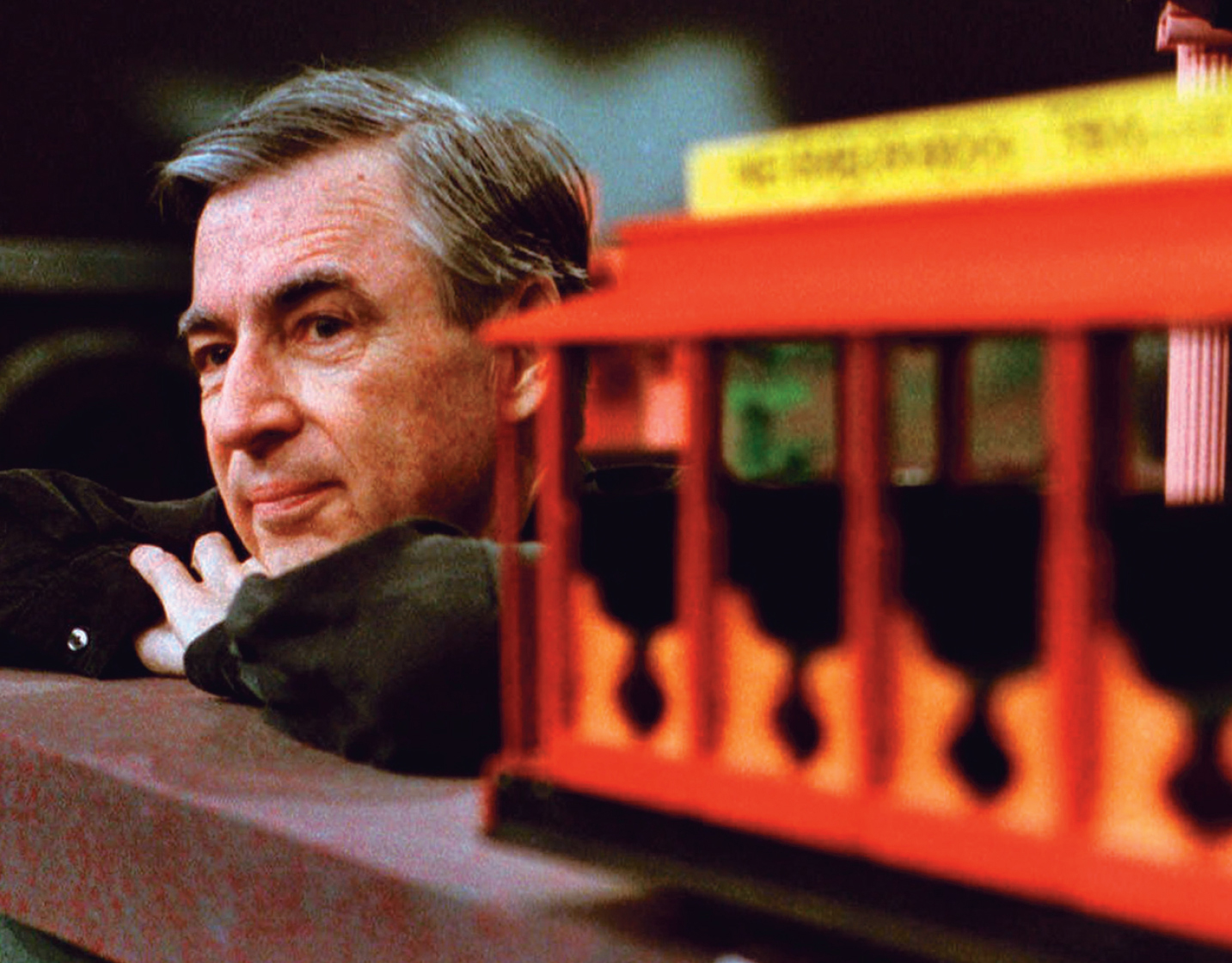LISTENING ACTIVELY
Printed Page 145
5. Listening Actively

Listening is our most primal and primary communication skill
Fred McFeely Rogers began each day by swimming laps in a local pool.1 A nonsmoking, nondrinking vegetarian, he was happily married for close to 50 years and helped raise two sons. He also was the most awarded person in television history: he received two Peabody Awards, numerous Emmys, the Presidential Medal of Freedom, and a star on the Hollywood Walk of Fame. But Rogers saw himself primarily as a minister who believed in the power of listening. From his perspective, the greatest communicative gift people could give was attentive silence that encouraged others to openly express their deepest emotions.
Although he eventually would receive honorary degrees from more than 40 different institutions—including Yale, Carnegie Mellon, and Boston University—Rogers’s first degree was in music composition from Rollins College in Florida. Rogers planned on entering the seminary after graduation but was sidetracked by the chance to help establish the first public television station, WQED in Pittsburgh. As he later explained, “I got into television because I hated it so, and I thought there’s some way of using this fabulous instrument to nurture those who would watch and listen” (Stimson, 1998). While working at the station, Rogers attended classes at Pittsburgh Theological Seminary. Ordained in 1963, he decided to minister to children and their families by creating Mister Rogers’ Neighborhood, a TV program emphasizing affirmation, acceptance, and, most of all, listening. In Rogers’s words, “being a good listener is a vital part of ministry, especially ministry with children. . . . I cultivated my own listening skills in part by integrating silence into my life as a part of my daily spiritual discipline.” By providing children with an adult who would listen to their concerns, Rogers’s show helped youngsters express their emotions in healthy ways. During the Gulf War, for example, Rogers dedicated a series of episodes to parents and children with close relatives fighting in Desert Storm. He encouraged parents to discuss life and death openly with their children rather than lying to them or avoiding their questions.
Rogers’s renowned listening ability matched a talent for speaking powerfully in ways that made others listen. In the late 1960s, a congressional committee headed by notoriously gruff Senator John Pastore was considering halving public broadcasting’s funding. Rogers testified before the committee, describing the importance of providing children with a compassionate adult listener on television. After hearing Rogers’s testimony, Pastore remarked, “I’m supposed to be a pretty tough guy, but this is the first time I’ve had goose bumps in the last two days.” The committee then voted to approve full funding for public broadcasting.
Mister Rogers’ Neighborhood became the longest-running show in television history. During a 33-year span, Rogers welcomed guests as diverse as the Harlem Boys Choir, chef Julia Child, and cellist Yo-Yo Ma. The show became so well known that it remains a cultural icon—many people still remember the opening song, the gentle lilt of Rogers’s voice, and his famous cardigan sweaters. Rogers was lampooned by everyone from comedian Eddie Murphy to the writers of the animated series Family Guy. But through it all, he remained committed to the central message of his subtle, nondenominational television ministry: listen to others and offer them love, respect, and kindness. Even after his death in 2003, the words he shared at the end of each episode still linger: “I’ll be back when the day is new, and I’ll have more ideas for you. And you’ll have things you’ll want to talk about. I will too.”
We often take listening for granted. It’s a natural but otherwise unremarkable part of our interpersonal communication. Compared with the knowledge, motivation, and skill that competent speaking requires, listening seems to just happen. But if we view listening as secondary to speaking, we miss two truths about it. First, listening is our most primal and primary communication skill. As children, we develop the ability to listen long before we learn how to speak, read, or write. As adults, we spend more time listening than we do in any other type of communication activity (Wolvin & Coakley, 1996). Second, we each have the potential to develop our listening into something far more profound than passive action. When we practice active listening, we transcend our own thoughts, ideas, and beliefs, and begin to directly experience the words and worlds of other people (McNaughton, Hamlin, McCarthy, Head-Reeves, & Schreiner, 2007). By focusing our attention, tailoring our listening to the situation, and letting others know we understand them, we move beyond the personal and create the interpersonal. The result is improved relationships (Bunkers, 2010).
In this chapter, we discuss how to build your active listening skills. You’ll learn:
- The five stages of the listening process and strategies for improving your listening skills
- The many functions of listening
- The advantages and disadvantages of different listening styles
- Ways to avoid common forms of incompetent listening
outline
chapter outline
147
158
160
164
171